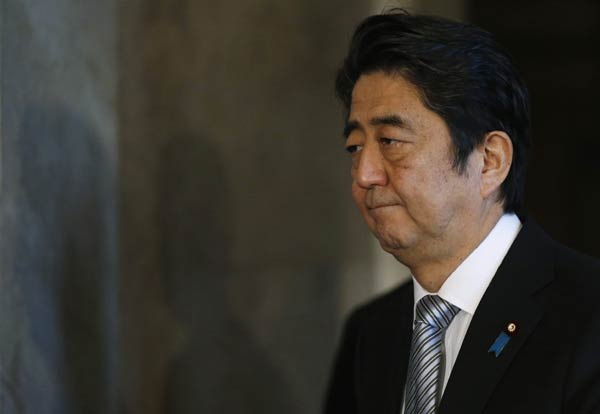China concerned about Japan's wording on history
(Xinhua) Updated: 2015-01-27 09:13
 |
|
Japan's Prime Minister Shinzo Abe walks to attend the ordinary session of parliament in Tokyo January 26, 2015. [Photo/Agencies] |
BEIJING -- China is concerned about the attitude adopted by Japan's government regarding their history of aggression, said a Chinese Foreign Ministry spokeswoman on Monday.
Spokeswoman Hua Chunying made the remarks after Japanese Prime Minister Shinzo Abe hinted that he may alter the wording of a war anniversary statement originally issued in 1995 by then Prime Minister Tomiichi Murayama.
The Murayama statement said Japan, through colonial rule and aggression, caused great damage and suffering to people in many countries, particularly in Asia, and that no such mistake should be made in the future.
This year marks the 70th anniversary of the victory in the World Anti-Fascist War and the Chinese People's War of Resistance Against Japanese Aggression, which is an important moment to review the history and map out the future, said Hua at a routine press briefing.
China is concerned about what signals Japan will send to the public on the important occasion, she said.
It remains to be seen whether Japan will downplay its history of aggression and carry on with its negative equity, or move on by reflecting on its militaristic past, she added.
Hua said China hopes Japan will abide by its commitments to recognize and reflect on its aggression history, follow the path of peaceful development, win trust from the international society through concrete actions and play a constructive role in safeguarding peace and stability in the region.
Abe said he wants to reflect his government's position in a statement to be released in August on the 70th anniversary of the end of World War II.
He plans to uphold the statements issued by past Japanese prime ministers in general, he said, but indicated he may not use the same wording in the Murayama statement in his new statement, Kyodo News Agency reported.
 When it comes to Africa, China's inroads are just getting started
When it comes to Africa, China's inroads are just getting started
When it comes to Africa, China's inroads are just getting started





